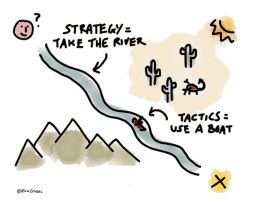A practical example of preventing a shift in the
imbalance of power would be the Habsburg Empire in the 18th century. Surrounded on all sides by stronger major powers(France,Prussia,the Ottoman Empire, the Spanish empire), they had to develop a grand strategy which would allow them enough time to deal with a war on multiple fronts.
The problem the Habsburg empire faced was the following : whenever any of the great powers declared war on her, others would join the fray because the Habsburg empire was deemed the weakest. In a scenario where the French, the Prussians and the Ottomans declared war, the empire was too weak to send armies to all fronts. They just didn't have the recources nor the manpower for that. If they faced one invasion with their entire army, the other fronts had to be neglected. If they split their armies, defeat in detail was assured. On paper it would seem the Habsburg empire was doomed when faced with a hostile coalition.
So how does an empire deal with such an inherent weakness/imbalance of power? The Habsburg grand strategy focused on diplomacy, creating chokepoints, and using its internal lines.
Diplomacy when used correctly is the mightiest of weapons, something the Habsburgers understood well before they became imperial grandees. And they were really the best at it at times. Prussia left more than one coalition at the outbreak of a major war because they got offered an underdeveloped slice of Silezia, insignificant and far away from the Habsburg heartlands. On more than one occasion the Ottomans were kept out of a war due to the diligent work of imperial ambassadors at the porte in Istanbul.(Much to the chagrin of the French) Those are bargains considering what's at stake during some of these wars : the very survival of the empire itself.
Chokepoints: Due to the mountainous nature of the Habsburg heartlands(Alps and Carpathians), enemy movement was more constrained and somewhat predictable. The best places to conduct defensive battles were identified well in advance. Accurate mapmaking and the scientific principles of the day made sure of that. The weakest spots were identified and fortresses built on solid scientific principles were constructed.
Which brings us to our next point: internal lines. By clever use of its internal lines, especially its waterways, the Habsburg empire was able to keep their gears of war going. Which goes back to the basics of warfare: The moving of men and material. The empire made sure it could react quickly in a manner of its own choosing. An enemy army either had to grind through a ring of forts, or would face a well prepared imperial army. But it would be the imperials deciding the type of engagement. Or so was the grand strategy.
On the implementation of that grand strategy, I'm just gonna quote A.Wess Mitchell. It more typifies the Habsburg empire as we know it. I'm sure my fellow TWC'ers will agree.

(I can recommend
The Grand Strategy of the Habsburg Empire he wrote if you're interested in the matter.)
'Constrained by a constitutional and financial straightjacket, Habsburg rulers developed an approach to power that more often than not, did not try to "overcome contradictions but instead covered and composed them in an ever professional equilibrium, allowing them substantially to go as they are and, if anything, playing them off against each other". The preference for
fortwursteln(muddling through) ... evolved not from principled restraint but rather necessity, as the only sustainable method of governance for such a complicated realm.'










 Reply With Quote
Reply With Quote
























